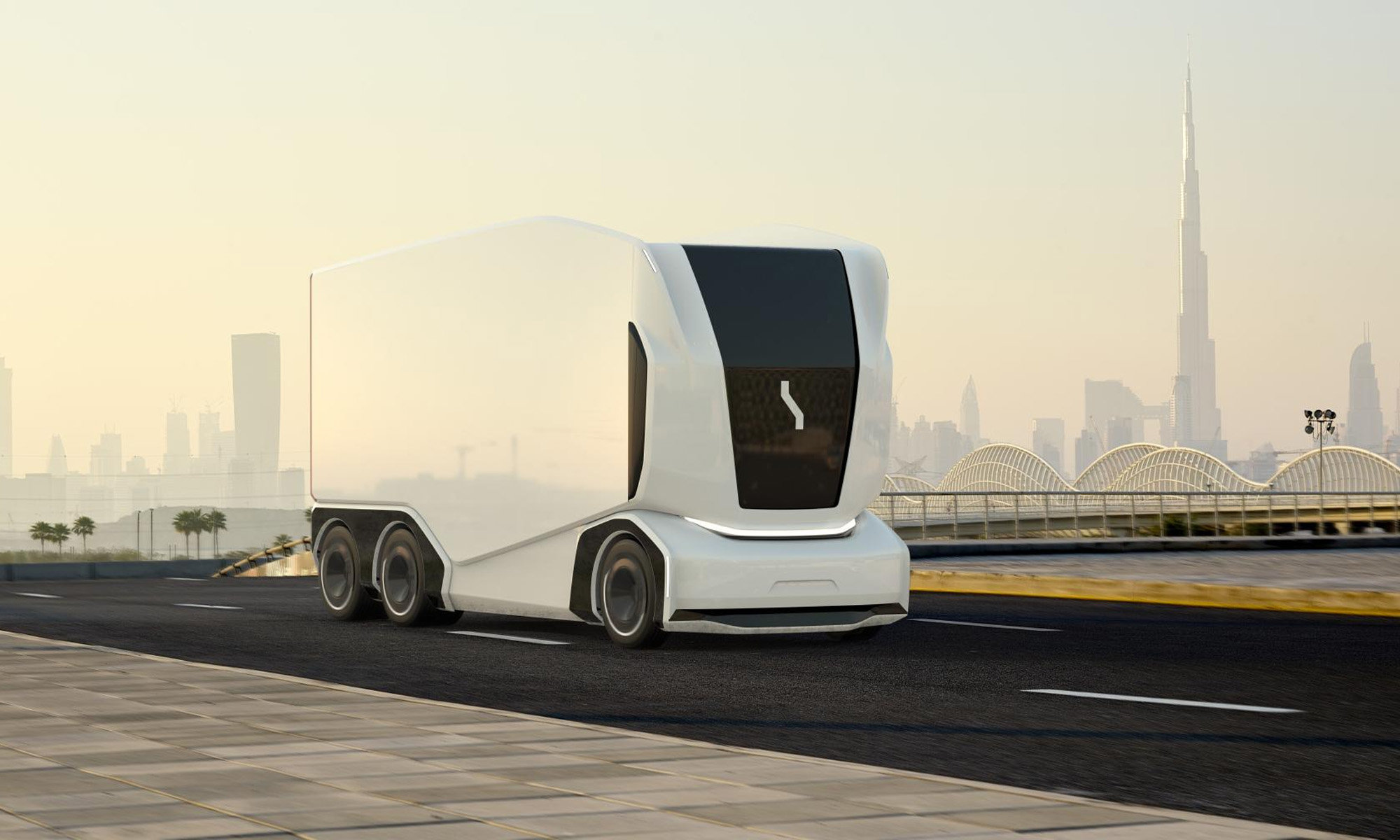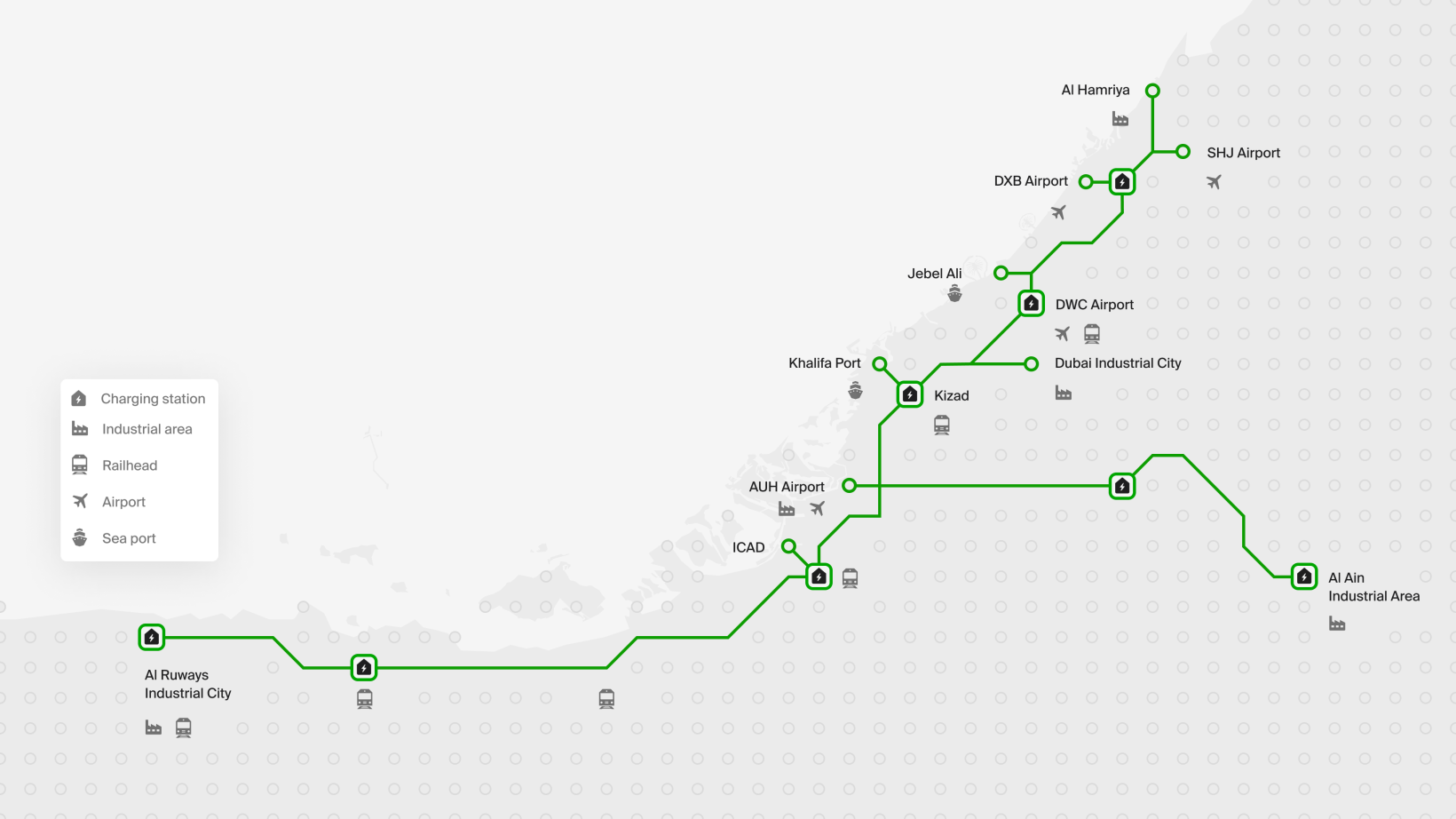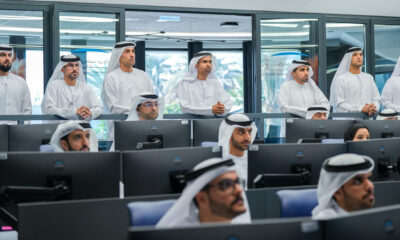News
Futuristic Electric Self-Driving Trucks Are Coming To The UAE
Startup Einride is about to begin its expansion into the Middle East.

Einride, a Swedish startup and pioneer in electric autonomous freight transport, is expanding into the Middle East. The move follows a collaboration agreement with the government of the United Arab Emirates to accelerate the transition to sustainable logistics and shipping.
Founded in 2016, Einride has a grand vision to decarbonize the freight industry by developing an entire ecosystem of electric and autonomous vehicles, charging stations, and connectivity networks.

The Scandinavian firm is already operating in Europe and the United States and will soon add over 550 km of its autonomous logistics ecosystem to Abu Dhabi, Dubai, and Sharjah. The project, known as Falcon Rise Grid, will encompass 2,000 electric trucks, of which 200 will be fully autonomous. Einride will develop the project over the next five years, which will include the installation of 500 charging points and other network hardware.

“This collaboration gets to the core of what Einride provides — the transformation to effective and sustainable shipping that is fully electric,” announced Einride founder and CEO, Robert Falck. The startup, which has already partnered with the likes of Coca-Cola and Oatly, says its clients have reduced emissions by up to 95% while staying competitive.
Also Read: Dubai Hospital Delivery Drone Completes Successful First Trial
The UAE’s Falcon Rise Grid project follows a series of expansions for Einride over the past year, including Germany, Benelux, and the UK. In 2019 the company became the first to deploy an autonomous electric vehicle on a public road in Sweden, and in 2022, received approval to do the same in the United States.
News
Rabbit Expands Hyperlocal Delivery Service In Saudi Arabia
The e-commerce startup is aiming to tap into the Kingdom’s underdeveloped e-grocery sector with a tech-first, locally rooted strategy.

Rabbit, an Egyptian-born hyperlocal e-commerce startup, is expanding into the Saudi Arabian market, setting its sights on delivering 20 million items across major cities by 2026.
The company, founded in 2021, is already operational in the Kingdom, with its regional headquarters now open in Riyadh and an established network of strategically located fulfillment centers — commonly known as “dark stores” — across the capital.
The timing is strategic: Saudi Arabia’s online grocery transactions currently sit at 1.3%, notably behind the UAE (5.3%) and the United States (4.8%). With the Kingdom’s food and grocery market estimated at $60 billion, even a modest increase in online adoption could create a multi-billion-dollar opportunity.
Rabbit also sees a clear alignment between its business goals and Saudi Arabia’s Vision 2030, which aims to boost retail sector innovation, support small and medium-sized enterprises, attract foreign investment, and develop a robust digital economy.
The company’s e-commerce model is based on speed and efficiency. Delivery of anything from groceries and snacks to cosmetics and household staples is promised in 20 minutes or less, facilitated by a tightly optimized logistics system — a crucial component in a sector where profit margins and delivery expectations are razor-thin.
Despite the challenges, Rabbit has already found its stride in Egypt. In just over three years, the app has been used by 1.4 million customers to deliver more than 40 million items. Revenue has surged, growing more than eightfold in the past two years alone.
Also Read: Top E-Commerce Websites In The Middle East In 2025
CEO and Co-Founder Ahmad Yousry commented: “We are delighted to announce Rabbit’s expansion into the Kingdom. We pride ourselves on being a hyperlocal company, bringing our bleeding-edge tech and experience to transform the grocery shopping experience for Saudi households, and delivering the best products – especially local favorites, in just 20 minutes”.
The company’s growth strategy avoids the pitfalls of over-reliance on aggressive discounting. Instead, Rabbit leans on operational efficiency, customer retention, and smart scaling. The approach is paying off, having already attracted major investment from the likes of Lorax Capital Partners, Global Ventures, Raed Ventures, and Beltone Venture Capital, alongside earlier investors such as Global Founders Capital, Goodwater Capital, and Hub71.
























